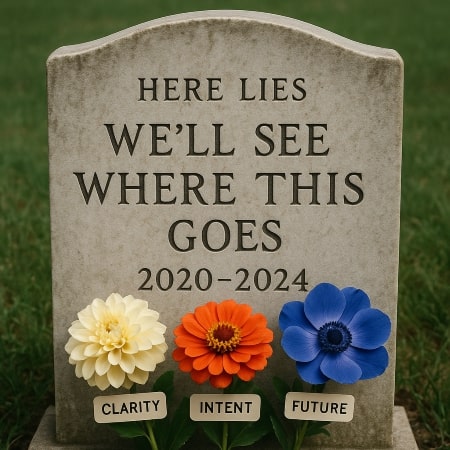
MORE SINGLES ARE CURIOUS ABOUT POLYAMORY ... BUT ARE YOU CUT OUT FOR IT?
Ten questions to ask yourself before exploring love beyond couplehood
Readers, this week we’re exploring a dating and relationship preference that has grown in practice over the last ten years: polyamory.
We might be called “Couple,” but even we know that love and dating aren’t always confined to twosomes. However, for those who are less familiar with the concept, “polyamory” describes a consensual non-monogamous relationship in which individuals establish romantic connections with multiple partners simultaneously ... usually with the intention of building meaningful and potentially long-term relationships, and always with the full knowledge and consent of all participants. In some polyamorous relationships, everyone involved dates each other; others are structured wherein one or both partners individually date other people.
Intrigued? You’re not alone. A 2021 study by the Kinsey Institute found that one in six Americans would like to engage in polyamory, and one in nine already have. Couplehood is still clearly the standard, but you’re more likely than ever to date polyamory-curious people.
But before you take the plunge into polyamory yourself, it’s critical to look inward and examine whether you’re truly suited for the emotional and logistical implications of a love life multiplied. We’ve come up with ten questions to get you started, but these only represent the tip of the iceberg. It’s important to do a deep dive within yourself (and with your current partner, if you have one) before getting serious with multiple people.
1. What are your motivations for considering polyamory?
The first question you need to ask yourself is one of motivation: why are you considering polyamory? Are you genuinely interested in having an emotional and romantic commitment to multiple partners, or are you more interested in having casual sexual encounters outside of one primary relationship? There is a distinction, and each scenario comes with a different set of benefits and complications. Make sure you fully comprehend what you’re considering before exploring connections beyond couplehood.
2. Are you ethical and respectful in your relationships?
Do you value consent, honesty, and respect in your relationships? And can you be transparent in your dealings with multiple partners? “Pure” polyamorous relationships are predicated on honesty; in fact, they call it “ethical non-monogamy” for that very reason. Your partners know about one another and consent to the arrangement, and they understand where they stand in relation to one another. If there are hierarchies (primary relationships versus peripheral ones), everyone is aware of and accepts that fact.
3. Can you identify your boundaries and limits?
Ask yourself what you’re seeking and where your boundaries lie. Are you interested in being part of a relationship in which everyone involved dates each other? Or do you want a relationship in which you have a primary partner, but each of you has individual relationships outside of your twosome? Also ask yourself what you’re comfortable with in terms of emotional and physical intimacy within potential polyamorous relationships. Are there any deal-breakers or non-negotiable boundaries you’d need in place to feel secure?
4. How well do you communicate with romantic partners?
Next, do an honest self-assessment about how comfortable you are discussing your feelings, needs, expectations, and boundaries with partners. Can you do so easily, openly, and honestly? Intimacy and open communication are essential to the health of a traditional monogamous relationship, and it becomes even more important when the number of partners is multiplied. If you struggle with this component of connection, you may want to work on it before pursuing polyamory.
5. Are you jealous or insecure? How will you manage these feelings should they arise?
Think of your current partner or someone for whom you have strong feelings, and then envision them “dating with intent” or in a serious relationship with someone else. How do you feel? Warm and fuzzy at the idea of your partner being extra-loved? Ambivalent? Jealous and insecure? The reality of polyamory is that your partner(s) will experience physical and emotional intimacy with people other than you. You will know about these connections and perhaps witness them in person. Jealousy is natural sometimes, and it can be innocuous as long as you’re able to process it in a healthy way. But if you don’t have a coping mechanism in place, it can get very destructive very quickly.
6. Can you allocate time and resources between partners?
Dating and relationships take a whole lot of time and proactive effort, so you need to ask yourself whether you’re organized enough to balance multiple relationships, work, and other commitments effectively. Are you flexible and willing to adapt when scheduling conflicts arise? More importantly, are you capable of giving multiple partners the time, attention and emotional energy they deserve? It’s necessary to give these logistical and emotional scenarios thought, especially since things only get more complicated as relationships evolve and you need to manage shared resources, finances, and perhaps family life in a way that respects everyone’s needs.
7. How do you handle potential rejection or breakups?
Can you cope with the possibility of a partner forming a deeper connection with someone else? Are you resilient enough to handle the emotional challenges that may arise when you’re connecting with – or disconnecting from – more than one person after a relationship has run its course? It sucks to envision the end of a love story, but it’s an important exercise in gauging your emotional reserves for polyamorous romance.
8. Do you understand the health and legal implications?
Hopefully most of us think about this regardless – even if you’re not into polyamory, you’re likely to have more than one sexual partner in your lifetime – but remember the health considerations of being involved in multiple relationships at once, such as STI testing and safe-sex practices.
Additionally, if you’re in a polyamorous relationship where marriage or children are involved, you’ll also want to consider how legal issues like custody arrangements and divorces could affect your family structure. While it isn’t super romantic to carve out contingency plans when you’re in love and thriving, it will spare some major complications down the road should things turn sour.
9. How do you envision your future with polyamory?
Here’s another question that you may or may not have an answer for yet: will polyamory be a long-term lifestyle choice for you, or are you exploring it temporarily? If you believe it’s the former, take time to consider how polyamory complements your other future hopes (career, marriage, children, etc.). And if it’s the latter, it’s important to be upfront with future partners and let them know that your arrangement has an expiration date.
10. Are you prepared for social pushback against your relationship(s)?
Perhaps the most important question to ask yourself is whether you’re prepared for the social pushback and bigotry you may face if you come out in a polyamorous relationship. It can be difficult, painful, and even dangerous to break from traditional social norms, and although polyamory is more present in popular culture and practice than ever before, it’s still rare, misunderstood, and not broadly accepted. (In fact, the Kinsey study found that among the respondents who aren't personally interested in polyamory, only one in seven respects people who practice it.) Finding friends or a community that understands and supports polyamory – and joining a support or advocacy network to help you navigate a sometimes unkind world – can be critical in maintaining your health and safety.



